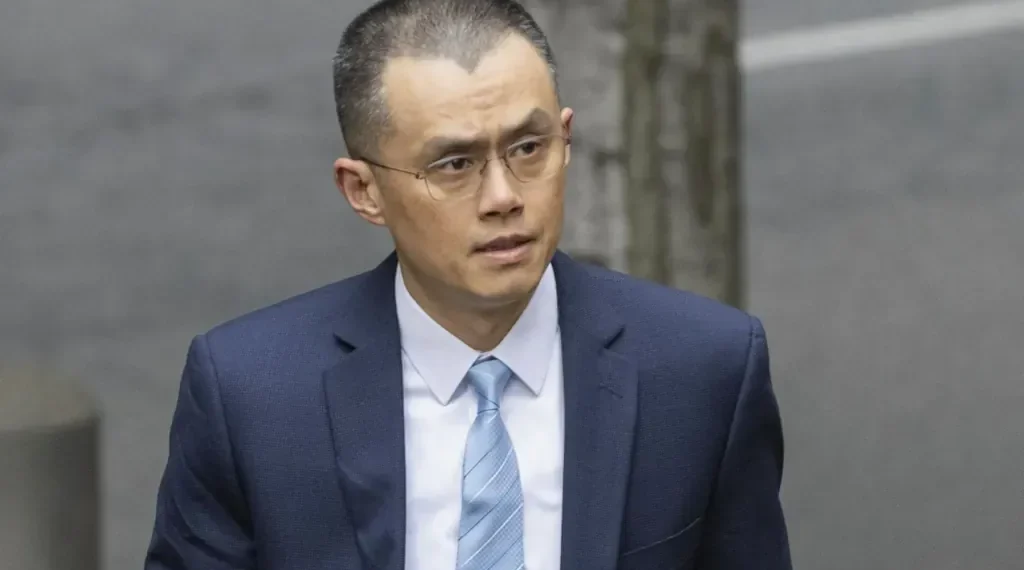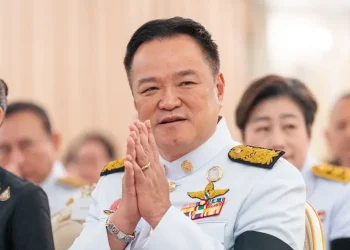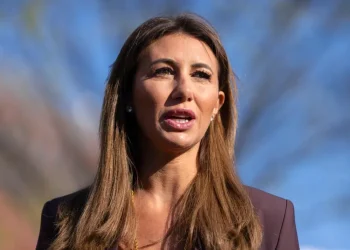U.S. President Donald Trump has granted a presidential pardon to Changpeng Zhao, the founder of Binance, the world’s largest cryptocurrency exchange. The move restores freedom and political favor to one of the most influential figures in the global digital asset industry, following Zhao’s conviction and short prison term for failing to prevent criminal use of his platform.
Zhao—widely known in crypto circles as CZ—was sentenced last year to four months in prison after pleading guilty to violating U.S. anti–money laundering laws under the Bank Secrecy Act. Prosecutors said Binance allowed criminals and sanctioned groups to move illicit funds through the platform, facilitating transactions linked to child exploitation, drug trafficking, and terrorism.
The pardon, announced Thursday by the White House, marks a significant shift in the federal government’s stance on cryptocurrency regulation under the Trump administration.
Trump Calls Zhao’s Case “Unfair”
Trump defended the decision, saying Zhao was “recommended by a lot of people” and suggesting that his conviction had been politically motivated.
“A lot of people say that he wasn’t guilty of anything,” Trump said. “He served four months in jail, and they said what he did is not even a crime. He was persecuted by the Biden administration.”
The president added that he had never met Zhao personally but was told the Binance founder “had a lot of support” among business leaders and the crypto community.
Zhao expressed gratitude for the pardon, posting on social media that he was “deeply grateful to President Trump for upholding America’s commitment to fairness, innovation, and justice.”
White House and Legal Background
White House press secretary Karoline Leavitt confirmed the pardon, stating that the White House Counsel’s Office conducted a full review before the decision. She accused the previous administration of pursuing “an egregious oversentencing” and said the pardon reflects Trump’s desire to “correct regulatory overreach.”
Leavitt added that the Biden administration had maintained a “hostile stance toward the cryptocurrency industry,” often applying what she described as a “regulation by enforcement” approach.
The pardon follows a broader pattern of Trump using executive clemency to intervene in high-profile or politically charged cases, often involving business figures or allies with connections to his administration.
A Controversial Case
Zhao’s prosecution stemmed from a 2023 Justice Department investigation that accused Binance of failing to implement adequate compliance systems to detect and report suspicious activity. Prosecutors said Binance processed over 1.5 million illegal transactions worth nearly $900 million, including trades linked to sanctioned entities such as Hamas’ al-Qassam Brigades, al-Qaida, and Iran.
Zhao’s guilty plea marked the first time a crypto executive had been sentenced to prison for violations of the Bank Secrecy Act. At sentencing, the presiding judge criticized Zhao’s “willful disregard” for U.S. financial laws, noting his comment to employees that it was “better to ask for forgiveness than permission.”
During the hearing, Zhao apologized, telling the court, “I failed here. I deeply regret my failure, and I am sorry.”
Legal Experts React
Former federal prosecutor Mark Bini, now a partner at Reed Smith specializing in crypto law, described Zhao’s case as “a regulatory offense, or at worst its kissing cousin.”
“This pardon, while it involves the biggest name in crypto, is not very surprising,” Bini said. “It fits Trump’s pattern of granting clemency where he views enforcement as excessive or politically motivated.”
The Justice Department has not yet commented on how the pardon may affect ongoing enforcement actions against Binance or its U.S. affiliate, Binance.US.
Crypto Industry and Political Ties
Zhao’s relationship with the Trump family and their growing involvement in digital assets have drawn attention from regulators and analysts alike. Binance and Zhao were early supporters of World Liberty Financial, a Trump family–linked crypto venture that launched a U.S. dollar–pegged stablecoin last year.
According to investment filings, a sovereign wealth fund from the United Arab Emirates invested approximately $2 billion in World Liberty’s stablecoin to acquire a stake in Binance—giving the project early credibility and international exposure.
Following Thursday’s pardon announcement, the World Liberty Finance token surged in value, outperforming every major cryptocurrency on CoinMarketCap.
Shifts in Crypto Policy Under Trump
Since returning to the White House, Trump has pursued policies aimed at deregulating digital assets and integrating blockchain technology into financial systems. His administration has ended several enforcement actions initiated under President Biden and disbanded the Justice Department’s crypto enforcement team, signaling a lighter regulatory touch toward the industry.
The move has been welcomed by some in the crypto sector but criticized by financial watchdogs who warn that reduced oversight could increase systemic risks and facilitate criminal activity.
Zhao’s pardon, observers say, underscores Trump’s commitment to supporting digital finance innovation while deepening the divide between the U.S. government and global regulators over how to oversee cryptocurrencies.
Zhao’s Rise and Legacy
Born in rural China, Zhao immigrated to Canada after the 1989 Tiananmen Square crackdown. He worked at McDonald’s as a teenager before studying computer science and entering the tech world. In 2017, he founded Binance, which quickly grew into the world’s largest cryptocurrency exchange by trading volume.
Zhao’s business model emphasized speed, accessibility, and innovation—but critics say it often prioritized growth over compliance. His case became emblematic of the clash between crypto entrepreneurship and traditional regulatory systems.
Now pardoned, Zhao’s future in the United States remains uncertain. Legal experts note that while the pardon removes his criminal record, Binance and its affiliates could still face civil or international investigations.
Industry Impact
Market analysts say the pardon could further bolster cryptocurrency prices and investor confidence in U.S. digital asset markets. However, others warn it may reinforce perceptions that political influence can sway financial accountability.
As the Trump administration redefines its approach to blockchain policy, the decision to pardon Zhao is being seen as both a symbolic and strategic gesture—signaling that Washington’s stance on crypto regulation is entering a new phase.
This article was rewritten by JournosNews.com based on verified reporting from trusted sources. The content has been independently reviewed, fact-checked, and edited for accuracy, neutrality, tone, and global readability in accordance with Google News and AdSense standards.
All opinions, quotes, or statements from contributors, experts, or sourced organizations do not necessarily reflect the views of JournosNews.com. JournosNews.com maintains full editorial independence from any external funders, sponsors, or organizations.
Stay informed with JournosNews.com — your trusted source for verified global reporting and in-depth analysis. Follow us on Google News, BlueSky, and X for real-time updates.














